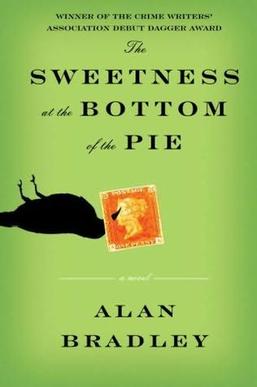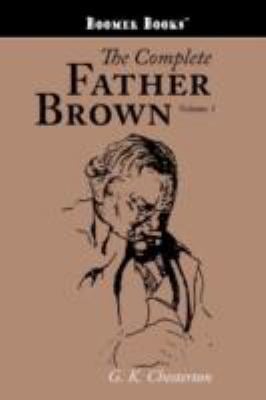I'd like to say at this point that my summer reading has gotten off to a good start. I've been out of school for about a week (give or take a day or two) and I'm already posting about my second summer mystery! This one is a bit of a jump from the Father Brown mysteries. Now, instead of a Roman Catholic priest, we have an aspiring chemist, who just happens to be an eleven year old girl with a passion for poison. Her name is Flavia de Luce.
Life has not been super-kind to Flavia. Her father has been emotionally distant since the death of her mother when Flavia was a baby, and her two older sisters are always ganging up on her. (Not that she can't handle herself. She gets back at them on more than one occasion). Things start to get interesting for Miss Flavia, however, when a dead bird turns up on the doorstep with a postage stamp pinned to its beak. This is followed up the next morning when Flavia finds a dying man in the cucumber patch. But, what starts off as simply fascinating soon becomes personal when Flavia's father is charged with the murder. Soon, she finds much more than she bargained for in this exciting story.

I have never been much for cozy mysteries, which is why I thought this would be a great summer reading assignment. As far as I'm concerned, this topic is about as close to virgin soil as I'm going to get when it comes to reading materials. Sure, I've read mysteries, but not many. Perhaps I don't because of a couple simple reasons. (1.) I hate being able to guess who the murderer is right off the bat. Do I try and guess anyway? Of course! Half the fun of reading a mystery is to figure out who the murderer is, what's the motive, and how was the murder committed. A lot of times I can guess. And that's annoying. (2.) Or, the murderer will be something stupid. "I killed Mrs. Patterson because I wanted to be the head of the bake-sale committee for this year's PTA." Huh. Not much of a high-stakes crime here. Just a stupid one. This book avoided both of these pitfalls. Not only was I not able to guess who the murderer was, but the motive and method were thought-out. It was very good!

Another of this book's positive characteristics was the detective. For such a grim sort of character (an 11 year old with a passion for poison!!) Flavia was incredibly likeable. She was funny, candid, and fascinating. Sometimes, when writing a mature child character, he or she does not sound realistic. Mostly, you get the image of an adult when reading, or worse, the character either sounds creepy or fakey-fake fake. So, of course, I was vaguely concerned that Flavia would turn out the same way. I was pleasantly surprised. She's smart, certainly. In fact, remembering the awful struggle that high school chemistry was for me, I would even venture to say that Flavia might be smarter than most adults my age (and probably smarter than me). But, at the same time, there is no doubt that she's a child. She's simply a beautifully written, three-dimensional character. Clever, but naive, Flavia is an impressive sample of a well-written character, and I can't get enough of her! Good news is that there are at least six books out, and a seventh on the way for 2015.
On a bit of a tangent, I know I had some great supplementary materials for Father Brown. Coincidentally, while there are no movies about Flavia out yet (as far as I'm aware), there is a huge stack of chemistry-related books lying on the floor of my bedroom. I'll hopefully be posting about those soon. It's entirely a coincidence that I have those. I didn't even make the connection about Flavia being a chemist until early this morning. Oh, and according to IMDB, there's a possible TV series in the works, as well.















